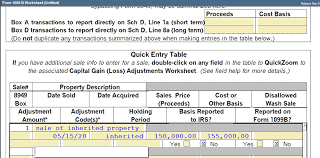Do you want to know how much a divorce in Texas cost? It is conditional. If you desire to divorce your marriage, you most likely have a lot on your mind. You want to engage a lawyer to assist you with your divorce, but you are concerned about the legal bills. In this article, we’ll be discussing the cost of divorce with a child, how much a divorce cost in Texas with or without a lawyer and how to file with no money.
However, it is crucial to remember that, the amount of legal costs that a divorce will ultimately cost varies by the case. Since each divorce has distinct aspects and difficulties that must be addressed, and these issues influence the number of attorney hours required to bring the case to a final agreement.
How Much Does a Divorce Cost in Texas Cost in Texas Without a Lawyer?
In Texas, you do not need a lawyer to file for divorce. You can file your divorce petition, complete your documentation, and attend divorce hearings without the assistance of a lawyer. However, in most situations, it is strongly advised that you have your divorce agreement examined by a divorce lawyer so that potential problems can be spotted out.
We also strongly advise that you hire a lawyer if your case demands litigation. Litigation is a formal court process that non-lawyers find difficult to navigate on their own. Pro se litigants are people who represent themselves in divorce court. There are resources available for pro se litigants, but this is not the best option. However, some people with very simple cases — such as those without children, assets, or disputes are able to complete the divorce paperwork and finalize their divorce without the assistance of a lawyer. By using the resources provided by TexasLawHelp.org, a free website created by the Texas Office of Court Administration.
While getting a divorce without a lawyer may appear to be less expensive, it may end up costing you more in the long run. You must finish all divorce documents accurately and satisfy all filing deadlines. Missing filing deadlines can result in a default judgment in favor of your spouse in some cases. Furthermore, you and your spouse may differ on child custody or asset division.
How Much Does It Cost to Get a Divorce if Both Parties Agree in Texas?
Expect to pay roughly $3,500 or more in split legal fees and court costs if you and your spouse agree on most things and it makes sense to hire a mediation attorney.
Cost of Divorce in Texas With Child
Obtaining a divorce when you and your spouse have a child/children below adult age. It can be complicated if there are no existing court decisions for custody and support of them. You and your spouse can actually reach an understanding. In an Uncontested Divorce, both parties agree on all matters (including custody, visitation, and child support) and are both willing to sign the divorce documents, your divorce can be completed by agreement. You can also read through Uncontested divorce instructions on the TexasLawHelp.org website. However in cases where it is contested or default;
Whereby your spouse is served and does not submit an answer or otherwise appear in court, your divorce might be completed by default (without your spouse). If your spouse files an answer or waives service and refuses to sign the Final Decree of Divorce, your divorce is challenged. To complete a disputed divorce, you must schedule a final hearing and provide your spouse with at least 45 days’ notice of the hearing. If your case is being contested, you should consult with a lawyer.
If your divorce is contested, you may be required to automatically submit information and papers to your spouse. It all relies on the number of “contested” issues in your case. In other words, the more you and your spouse fight, the more money you’ll have to pay. A divorce in Texas costs an average of $15,600 if no children are involved and $23,500 if children are included. According to USA Today, this places the state fifth in the US in terms of divorce costs.
What is a wife Entitled to in a Divorce in Texas?
A wife is entitled to everything her husband is entitled to in Texas Divorce Law.
All marital property must be divided equally between divorcing couples in Texas. Similarly, all obligations incurred by either spouse during the marriage are considered community debts and belong equally to both spouses. 3.002. (Tex. Fam. Code.) However, if there are “just and proper” reasons, the court may impose an unequal division. 7.001. (Tex. Fam. Code.)
The court starts its analysis with the assumption that all property owned by either spouse during the marriage is community property. 3.003. (Tex. Fam. Code.) Community property is defined by Texas law as any property obtained or earned during the marriage that is not separate property. A spouse who wishes to preserve a separate asset must provide clear and persuasive evidence that the asset is distinct property.
Anything that belonged to one spouse prior to marriage and was kept separate during the marriage is considered separate property. Income from separate property or property provided just to one spouse during the marriage—for example, a gift made by a friend or family member to the husband alone, or an inheritance received by the wife from a relative—could also be included. 3.001 of the Texas Family Code.)
How Do You File for Divorce in Texas With No Money?
How do you get a lawyer when you don’t have any money set aside? And how do you get a divorce if you can’t afford an attorney or court fees? The quick answer is that you can divorce even if you don’t have enough money for legal bills. This is what lawyers and judges refer to as an indigent divorce.
When you submit your divorce petition, whether with or without the assistance of an attorney, you must pay a filing fee. However, Texas has set up a procedure through which that cost can be eliminated. You must first complete and submit an affidavit of indigency form. The district clerk will arrange a hearing date once you file. At the hearing, you disclose your financial condition to the judge and request that the filing fees be waived. If the court grants your request, you will not have to pay these expenses.
While this may appear to be good news, there are risks associated with self-representation. Remember that the ball is now fully in your court. And if you are unfamiliar with divorce law or procedure, you may be going through a rocky journey. Even if you and your spouse agree on the conditions of the divorce, self-representation can cost you in the long run.
Cheap Divorce in Texas
Not all divorces include squabbling couples and high legal bills. In reality, in Texas, divorced spouses who can still communicate may be eligible for an uncontested or “agreed” divorce, which is a less expensive and combative process.
The key to an uncontested divorce is for both spouses to agree on all divorce-related matters and sign an agreement to avoid going to court. This simplified divorce process in Texas is frequently reasonably quick and has a far lower financial impact than a “contested” divorce.
An uncontested divorce is significantly speedier and less expensive than a typical divorce since couples can often employ a do-it-yourself alternative, such as an online divorce agency. They do, however, have the option of seeking expert assistance.
You can obtain your Texas uncontested divorce documents, complete with your specific divorce specifics, online. Print, sign, and file with the court according to the instructions.
However, you can get a complete online divorce papers preparation service for as little as $99.
How Much Does a Divorce Lawyer Cost in Texas?
In Texas, the average divorce lawyer charges $260 or more per hour. Most divorce attorneys charge a substantial fee at the start of the case, which they deduct after invoicing for their time. Many instances involving contentious matters necessitate the use of more than one retainer.
Most Texas family law companies accept credit cards, and some even offer payment plans. If you are concerned about attorney fees, ask your lawyer if there are any ways to reduce them, such as document preparation.
If you can’t afford to retain a lawyer for full-scope counsel (representing you every step of the process), look for a lawyer who will give limited-scope representation. This means that the attorney only provides you with specific services, such as accompanying you to mediation or drafting your divorce paperwork. Many lawyers charge a set fee for these “à la carte” services, which allows you to keep costs in check.
Do I Have to go to Court for Uncontested Divorce Texas?
The best-case situation is an uncontested divorce. Uncontested divorces in Texas often go rapidly through the system, according to state law. Outside of the courts, the majority of the actual work required for both spouses to achieve an agreement on their divorce settlement takes place.
Typically, at least one spouse will have to appear before the judge to answer questions. This is referred to as a “prove up” hearing. The judge will want to know that both parties properly grasp the implications of their acts.
Divorce is a significant legal choice with long-term ramifications. Even in uncontested divorces, it is the judge’s responsibility to grant the divorce and ensure that both parties are confident in their decision. The judge will also try to ascertain that both parties are signing the agreement voluntarily and freely.
This hearing, however, is essentially a formality and usually does not make or break the case. In an uncontested divorce, there is no need for a formal trial. Most of the time, the judge will approve the divorce on the agreed-upon terms. There is a statutory waiting period in Texas before the divorce becomes legal. In most circumstances, this term is 60 days.
FAQs
How much does a typical divorce cost in Texas?
According to a Lawyers.com poll, the average cost of a divorce in Texas is $15,600.
How long does divorce take in Texas?
A divorce in Texas is not final until at least 60 days after the petition is filed. Divorces often take six months to a year or more to finalize, depending on the intricacy of the issues and the level of disagreement.
What can you not do during a divorce?
- You must not act irrationally or feel compelled to use the legal system to retaliate against your spouse.
- You must not ignore your children.
- Never use children as pawns.
- Never give in to rage.
- You must not expect to receive everything.
- Never Fight in Every Fight.
- You must not try to conceal money.
- Divorces should never be compared.






